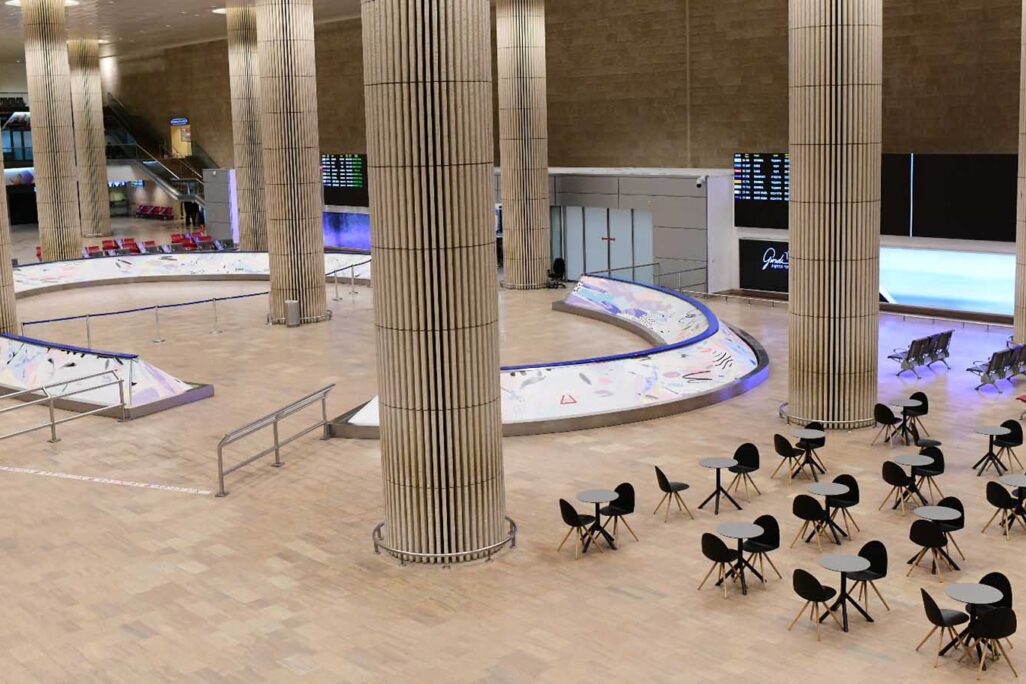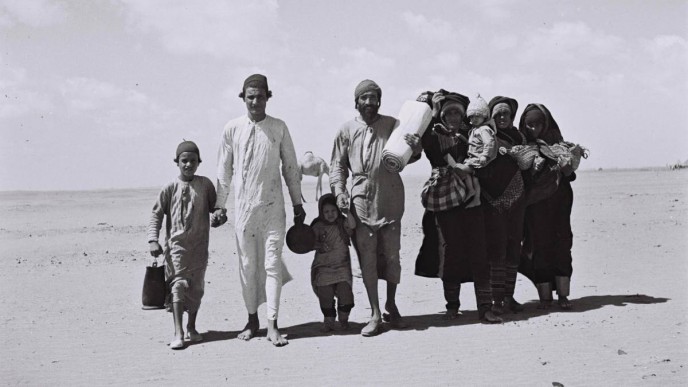
For the first time in its history, Israel abruptly halted aliyah, or Jewish immigration to Israel, last week as part of a national lockdown to curb the spread of coronavirus.
The news threw a wrench into immigration plans that were months or years in the making for Jews around the world. Some are merely hanging in an anxious limbo, but for others, the wait time may prove dangerous. In Ethiopia, Jews whose immigration had already been repeatedly delayed are dealing with the outbreak of civil war in their country. A group of Jews from Ukraine had already sold their homes and belongings when the airport closure derailed their plans.

“This is the first time ever, even over the course of wars and persecution in other countries, even when Israel was receiving so many immigrants each year,” Naomi Tamura, 26, told Davar. “A lot of people make aliyah because of persecution, but a lot of people also make aliyah because they want Israel to fulfill the Zionist dream. So what does it mean when that place suddenly closes the door?”
Tamura, who is currently living with her family in Pennsylvania, had scheduled her flight to Israel for January 26. The flight was cancelled when the Knesset approved a near total shutdown of Ben Gurion Airport last week, which was extended until February 7 at a Knesset meeting on Sunday.

Aliyah has long been a pillar of Zionism, as reflected in the Law of Return, Israel’s immigration policy for Jews around the world. Israel passed the Law of Return in 1950, two years after its founding as a state. It states that Jews around the world have the right to immigrate to Israel. It was amended in 1970 to include non-Jewish family members, so as not to break up families and to aid those who face persecution due to their Jewish roots.
Before the founding of the state, the Zionist movement coordinated waves of aliyah, including when legal Jewish immigration was restricted under the British Mandate during and after World War Two. Since Israel’s founding, successive waves of aliyah have arrived. In the 1950s, there was an influx of Jews displaced by the Holocaust and by turmoil across the Middle East and North Africa. In the 1980s and 1990s, hundreds of thousands of Jews from the former Soviet Union and Ethiopia immigrated to Israel.

Today, Israel has the highest proportion of immigrants of any country in the world, as one third of Israelis are themselves immigrants, and another third are the immediate offspring of immigrants.
“The States is going a bit haywire right now”
Before deciding to make aliyah, Tamura worked for two years managing Habonim Dror North America Workshop, the longest-running gap year program in Israel.
“Covid threatened our ability to run that program, and it was still really important to run it and sign up kids,” she said. “There hasn't been a year when Workshop didn't happen. It's been continuous for 70 years, and I would like to see aliyah be the same.”
Evan Shnaidman, 20, from New Jersey, decided to make aliyah after spending a year studying in Israel in Tel Aviv.

“I felt I had a purpose in Israel, and I didn't feel I had as much of a purpose in the U.S.,” Shnaidman, Who wants to work as a psychologist during his service in the Israeli military, said. “I felt more satisfied meeting people from all over the world who have something in common. Not Judaism exactly, but Jewish culture. We could learn about each other's homelands, but also have a common homeland.”
When he returned to America to continue his studies in New York, Shnaidman felt the difference.
“In America, everyone is always pessimistic all the time,” he said. “Every joke is a complaint, and everyone is very negative. In Israel, it just was a different mindset.”
Arieh, 33, from Colorado, had planned to make aliyah in early February. He preferred for his full name to remain undisclosed. He, too, expressed misgivings about continuing to live in America.
“The States is going a bit haywire right now,” he said. “If you look at history, things are good for Jews in a country until they aren't, and there's not much warning between the are and the aren't.”
He ended his lease in preparation for making aliyah, and has been staying with family.
“It makes for an awkward situation when discussing that I might have to stay longer,” he said. “My mother's cat hisses at me.”
“I don't want to downplay taking measures to curb the virus, because it is a serious thing. But there are ways we can deal with preventing the spread. We are getting tested, we are going into quarantine,” said Tamura.
Still, she added, “it feels very strange to have such a specific milestone in my life not have a concretized date and to just be in limbo.”
“It's okay for me to feel sad and also recognize that out of many soon-to-be olim, I am relatively privileged. It's hard to not think about other olim who are coming from places where it's really not simple to wait, and the limbo period can actually be really dangerous,” she said.

“I fear for her life”
Meanwhile, for Jews waiting to make aliyah from Ethiopia, delays imposed by the Israeli government are unfortunately nothing new. Although hundreds of Ethiopian Jews have made aliyah this year, an estimated 7,800 are still waiting in transit camps in Gondar and Addis Ababa.
Their situation has grown more dire in recent months as civil war erupted in Ethiopia this year. Violence has broken out near the transit camps in Gondar and Addis Ababa.

"I understand the situation, but aliyah cannot be stopped," said Mimi Rata, 33, whose niece, Snait, 24, and her 6-year-old son were due to immigrate to Israel from Gondar, Ethiopia, on Friday. Their flight was canceled due to the airport closure.
The plane that Snait planned to board would have been the seventh in an effort Israel has branded Operation Tzur Israel. In 2019, the Knesset resolved to fulfill a 2015 resolution that promised the thousands of Jews remaining in Ethiopia would be allowed to make aliyah. Before the airport closure, several hundred Jews from Ethiopia made aliyah in the fall and winter of 2020.
The Ethiopian Jewish community has encountered difficulties making aliyah for decades. Over the years, voices from within the rabbinate, the Israeli government, and even the Ethiopian Jewish community in Israel have raised concerns that the remaining Ethiopian Jews – most of whom were converted to Christianity by force during the 18th and 19th centuries – are not “real Jews,” but rather Christians seeking to escape poverty in Ethiopia.

While similar concerns have been raised regarding Jews from the former Soviet Union, most have been allowed to make aliyah, prompting some activists to call the delays for Ethiopian Jews racist.
“They have never stopped aliyah. I appeal to those in charge to think of those waiting as human beings, and to be a little sensitive. Their hearts and their legs and their heads are already here, they planned to immigrate, and at the last minute they say no? It doesn’t make sense,” said Rata.

Rata said that her niece is in a difficult emotional state, and so is her young son. Mimi's sisters, Snait's mother and aunt, have immigrated in the last two months. Snait is the last of her family remaining in Ethiopia, making her situation all the more difficult.
"She has no one there. No family, she has nowhere to be, and I fear for her life. I do not want my sister to suffer like my mother. It took her 14 years to meet her daughters," she said.






